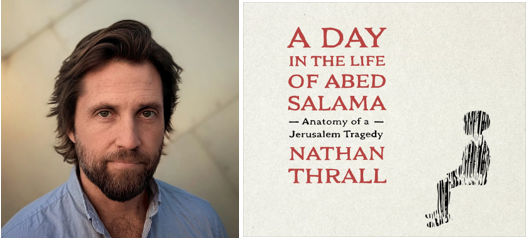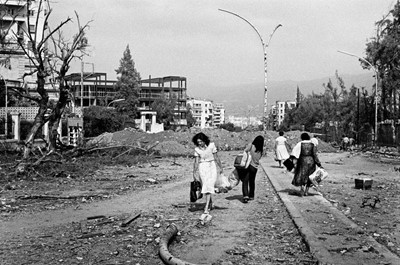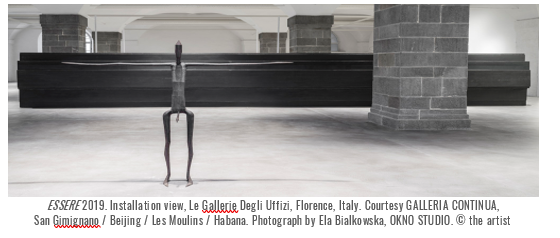Other People’s Voices
Every once in a while the heart falls silent and a pause imposes itself.
At such moments, I find respite in curating other people’s voices.
First, there is the fact that becomes truth:
In a Haaretz interview, Nathan Thrall, certainly one of the most astute and sensitive observers of Israel and Palestine, distilled the essence of the dilemma now–for both Israelis and Palestinians.
“ As far as [Thrall] is concerned, Israel’s population is 7 million Jews and 7 million Arabs, 4 million of whom lack citizenship.”
Whichever way you look at it, on whatever side of the fence you stand, and however much you truly believe your narrative is totally right and the other utterly wrong, there is no disputing the fact that Thrall lays out. The implications of it are the future. You could reasonably say Hamas’s October 7 assault and Israel’s mass murder in Gaza, whether you think it is genocidal or perfectly justifiable, are previews of tomorrow. That is, if we fail to reimagine it.

Then there are the video clips that present as exhibits of this Israel-Palestine dilemma that has the two people, one the oppressor, the other the oppressed, in such a chokehold.
The clips appear anecdotal but, in fact, capture what it means to be cast in the two roles: the petty cruelties that infuse terror into an Israeli soldier’s shoves and slaps of a Palestinian child in a grocery store, and the war crimes antiseptically delivering death from the skies. Each reel is a showpiece of the psychological and emotional disfigurements that attach to the brutality of the acts.
Then there is the essay that illuminates the decades-long creeping trends the Israel-Palestine dilemma has triggered, finally giving shape to the sharp breaks we now glimpse, one of them, in Peter Beinart’s words, “an earthquake.”
Here’s Beinart on “The Great Rupture in American Jewish Life:”
The emerging rupture between American liberalism and American Zionism constitutes the greatest transformation in American Jewish politics in half a century. It will redefine American Jewish life for decades to come…
…the American Jews who insist that Zionism and liberalism remain compatible should ask themselves why Israel now attracts the fervent support of Representative Stefanik but repels the African Methodist Episcopal Church and the United Automobile Workers. Why it enjoys the admiration of Elon Musk and Viktor Orban but is labeled a perpetrator of apartheid by Human Rights Watch and likened to the Jim Crow South by Ta-Nehisi Coates. Why it is more likely to retain unconditional American support if Mr. Trump succeeds in turning the United States into a white Christian supremacist state than if he fails.
For many decades, American Jews have built our political identity on a contradiction: Pursue equal citizenship here; defend group supremacy there. Now here and there are converging. In the years to come, we will have to choose.
Then there is the five-hour debate on the Lex Fridman podcast on the Israel-Palestine dilemma. Political theater at its most gripping, by turns passionate, furious, dense, cathartic, erudite, dogmatic, funny. In the last 30 minutes, Norman Finkelstein and Mouin Rabbani for Palestine on one side, and Benni Morris and Steven Bonnell for Israel on the other, were invited to offer their thoughts on peace and its chances. And right then and there, the core reason for its elusiveness in the 100-year old struggle over Palestine was laid bare.
Palestinians’ rights, at least as minimally guaranteed by international law, argued Finkelstein and Rabbani. The balance of power and the terms it imposes, countered Bonnell and Morris. Quite simply, Israel holds sway, Israel dictates.
Then there is that one poem by Mahmoud Darwish that explains why, for all its might, Israel has never managed to persuade the Palestinians to raise that white flag and take those crumbs.
You ask: What is the meaning of “refugee”?
They will say: One who is uprooted from his homeland.
You ask: What is the meaning of “homeland”?
They will say: The house, the mulberry tree, the chicken coop, the beehive, the smell of bread and the first sky.
You ask: Can a word of eight letters be big enough for all of these, yet too small for us?
I read the poem in Iman Fayyad’s piece in The New York Times, “A House is Not a Home.” It ends with these words:
Among the seemingly infinite uncertainties facing Palestinians today, one eternal truth that we have come to know all too well is that you can destroy a house, but you can never take away a home.
Perhaps Morris and Bonnell can draw wisdom from the yearnings of Darwish and Fayyad. Or perhaps not.
Then there is The Age of the New Left, historian Fawwaz Traboulsi’s latest book. On page 248, he writes about the 1982 Israeli siege of Beirut:
The Israeli forces…forbade incomers from bringing in water and food; Beirut was ringed and empty; there was no electricity most hours of the day. At times, bread was scare. Women baked on barrels heated on coal… Even candles became rare, but besieged Beirut was free.

The IDF bombarded entire neighborhoods, killed thousands, the overwhelming majority of them civilians, and strangulated Beirut, but they didn’t last more than two weeks in the city. On page 260, Traboulsi remembers:
[The forces] began to withdraw on September 27, after they had facilitated the Sabra and Chatilla massacres, offering support and cover. No one who was in Beirut then can forget the sight of the withdrawing army. Israeli soldiers left on their tanks and trucks, led by jeeps with loud speakers calling on the people of Beirut ‘not to fire on us; we are withdrawing.’ Robert Fisk, correspondent for the English Times, wrote that the retreat that day “happened not a moment too soon… Assassinations of IDF members in Beirut had reached an average of one every five hours. Israeli soldiers were beginning to be bogged down in a guerrilla war unleashed against them.” (My translations).
Then there is the video that went viral of women from Lebanon’s haute bourgeoise colonies, on the occasion of Mother’s Day, descending upon Hermes in an attack of consumerist vengeance. No mystery there, but plenty of it in how people everywhere marveled–yet again–at the most predictable and least interesting aspect of our character.
Meanwhile, “Israel is coming,” pundits and people alike are fretting, as the south absorbs the body blows and the rest of Lebanon goes about its business, whatever that is. Israeli news and footage, it just so happens, are also showing the north emptied of its residents and businesses. “We’re not returning,” they’re screaming.
Balance of power in this region is never that clean or clear, is it?
****
On Another Note
Recently, the British artist Antony Gormley joined Rory Stewart and Alastair Campbell on their podcast, The Rest Is Politics, Leading. A very interesting conversation about him, his art, the state of the arts, and pretty much everything under the sun. On Artificial Intelligence, Gormley quipped, “If Demis Hassabis or Sam Altman are right, that AI is going to solve intelligence and make energy free, we are all going to now become redundant. We better all become artists. We’d better find a meaningful way of making sense.”
Best proposition for the future, I have heard in recent days. Because very little is making sense to me anymore.

